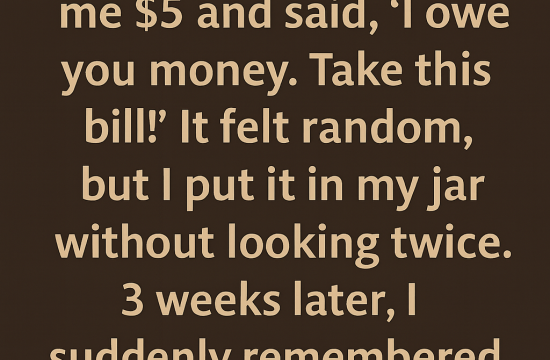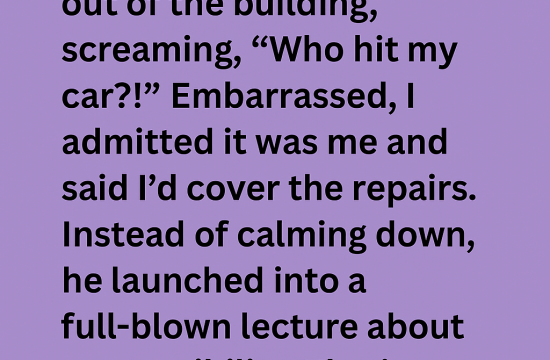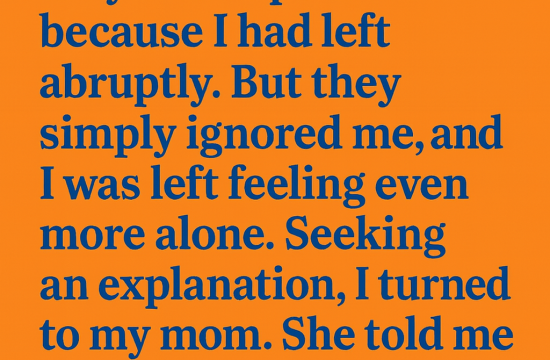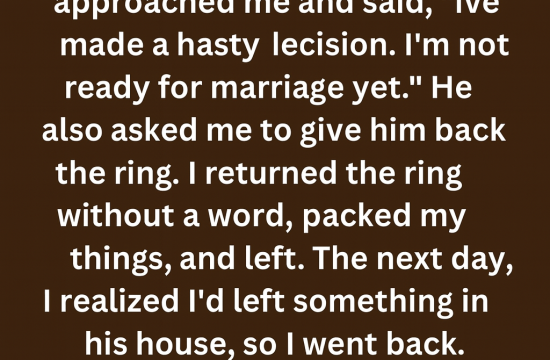During my wedding, my mother-in-law made some snide comments about my mom not being dressy enough. My mom was wearing our culture’s traditional attire—something that meant a lot to us—and everyone else thought she looked lovely. But Aruna, my MIL, saw it differently.
When I found out, I messaged my wedding photographer with a simple request:
No solo shots of my mother-in-law in the final album.
To some, that might sound petty. But in that moment, it felt like the smallest yet most meaningful form of justice I could quietly give to my mom. She had spent weeks helping me prepare—hand-stitching decorations, handling last-minute errands, and keeping me sane through the chaos. The last thing she deserved was to be ridiculed for honoring the traditions she held dear.
My photographer, Tania, didn’t ask questions. She just replied, “Got it. Don’t worry.”
The wedding itself was beautiful—a countryside venue filled with wildflowers and lanterns. My husband, Ravi, was everything I’d hoped for: kind, patient, and fiercely loyal. But his mother, Aruna, had always been… complicated.
From the first time we met, she was polite but never warm. She’d compare me to her niece, who was—according to her—“more polished.” Her compliments were always laced with judgment. I tried brushing it off as generational gaps or initial awkwardness. But the comment about my mother crossed a line.
After the wedding, things seemed to settle. Ravi and I escaped to Kerala for a short honeymoon—mornings with dosa by the beach, evenings watching the sun sink into the backwaters. It was peaceful, drama-free, and perfect.
Then we returned home.
Aruna had taken it upon herself to plan a post-wedding reception in our hometown—without consulting me. “Don’t worry, I know what’s best,” she said.
I didn’t want to stir conflict so early in our marriage, so I let it go.
A month later, the wedding album arrived.
Ravi and I opened it together. The photos were stunning. My mother looked radiant, full of joy. Every frame felt warm and heartfelt.
Then Ravi paused.
“Hey, where are the solo pictures of Amma?” he asked, flipping back through the pages.
I hesitated before answering. “I asked the photographer to exclude them.”
He looked at me, surprised. “Why?”
So I told him. Everything. What his mother said. How it hurt. Why I did what I did—not out of spite, but out of loyalty to my mom.
He didn’t interrupt. When I finished, he let out a slow sigh.
“She had no right to say that. I’m sorry.”
He didn’t defend her. That meant everything.
“I’ll talk to her,” he said. And he did.
But of course, it didn’t go well.
Aruna called the next morning.
“I heard what you did. You had me erased from the wedding album? What kind of daughter-in-law does that?”
I stayed calm. “One that defends her mother when she’s disrespected on her daughter’s wedding day.”
She was silent for a beat, then muttered something about “people being too sensitive” and hung up.
Tension simmered for months. She still visited occasionally, but the civility felt forced.
Then came the unexpected twist.
Ravi’s cousin, Priya, was getting married. It was a big deal—her family was prominent, and the guest list glittered with local elites. Aruna was practically vibrating with excitement.
Two days before the ceremony, Priya called me, voice strained.
“I don’t know how to say this… but your MIL requested that your mom not be seated in the front row.”
I froze. “What? Why?”
“She said it might confuse guests because your mom dresses so… differently. Said it would be better optics if she sat further back.”
I could feel my jaw clench. “Thanks for telling me.”
When I told Ravi, he was livid.
“That’s it. This has gone too far.”
He called Priya’s mother and calmly explained the situation. To her credit, she apologized profusely and promised to fix the seating. But we still didn’t go.
After that, the gossip mill kicked in. I became the “difficult” daughter-in-law. Relatives whispered that I was “opinionated,” that I was “driving a wedge” in the family.
But then, something surprising happened.
One by one, women started reaching out. Quietly. Privately.
My husband’s cousin’s wife messaged me:
“Good for you. She’s been cold to me for years too. No one ever calls it out.”
Another aunt said, “I’m proud of you for standing up for your mom. Aruna’s always had a sharp tongue.”
I realized then: silence doesn’t preserve peace. It just protects bad behavior.
Six months later, we hosted a small get-together. My mom was laughing in the kitchen with friends, radiant as ever.
Aruna came too—stiff, but present.
At one point, I overheard her talking to one of Ravi’s uncles. She was showing him a photo on her phone.
“She refused to include any pictures of me in the album,” she said, voice bitter.
The uncle glanced up and said, “Maybe next time, don’t insult people’s mothers on their wedding day.”
She said nothing.
A week later, she called.
“I was wondering if your mom would like to come over for tea sometime.”
She didn’t say why. She didn’t apologize. But it was something.
My mom, ever gracious, accepted. The meeting was civil. Not warm—but respectful. And that was enough for now.
Over time, things softened. We never became best friends, but we found a rhythm. A truce built not on pretending, but on mutual understanding.
Two years later, when our daughter was born, Aruna visited us in the hospital. She brought a handmade blanket and sat quietly.
After everyone left, she turned to me and said:
“I never liked being corrected by someone younger. But maybe you were right to do what you did.”
It wasn’t an apology, not exactly. But in her way, it was.
I smiled. “I didn’t want a fight. I just wanted my mom to be treated with dignity.”
She nodded slowly. “She’s a good woman.”
That meant more than I expected.
Looking back, maybe I could’ve handled it differently. But I also know this: drawing that boundary early shaped the life Ravi and I would build. A life where dignity matters. Where silence isn’t mistaken for harmony.
The album still sits on our coffee table. Guests flip through it, admiring the joy, the colors, the love. They never ask who’s missing. And I never bring it up.
Because it was never about erasing someone.
It was about preserving what mattered.
And in every frame of that album—my mom’s pride, our laughter, the truth of that day—what mattered most is all still there.











